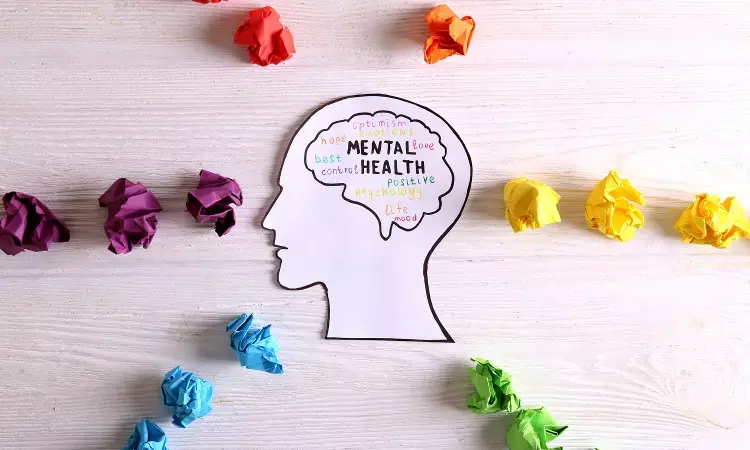- Home
- Medical news & Guidelines
- Anesthesiology
- Cardiology and CTVS
- Critical Care
- Dentistry
- Dermatology
- Diabetes and Endocrinology
- ENT
- Gastroenterology
- Medicine
- Nephrology
- Neurology
- Obstretics-Gynaecology
- Oncology
- Ophthalmology
- Orthopaedics
- Pediatrics-Neonatology
- Psychiatry
- Pulmonology
- Radiology
- Surgery
- Urology
- Laboratory Medicine
- Diet
- Nursing
- Paramedical
- Physiotherapy
- Health news
- Fact Check
- Bone Health Fact Check
- Brain Health Fact Check
- Cancer Related Fact Check
- Child Care Fact Check
- Dental and oral health fact check
- Diabetes and metabolic health fact check
- Diet and Nutrition Fact Check
- Eye and ENT Care Fact Check
- Fitness fact check
- Gut health fact check
- Heart health fact check
- Kidney health fact check
- Medical education fact check
- Men's health fact check
- Respiratory fact check
- Skin and hair care fact check
- Vaccine and Immunization fact check
- Women's health fact check
- AYUSH
- State News
- Andaman and Nicobar Islands
- Andhra Pradesh
- Arunachal Pradesh
- Assam
- Bihar
- Chandigarh
- Chattisgarh
- Dadra and Nagar Haveli
- Daman and Diu
- Delhi
- Goa
- Gujarat
- Haryana
- Himachal Pradesh
- Jammu & Kashmir
- Jharkhand
- Karnataka
- Kerala
- Ladakh
- Lakshadweep
- Madhya Pradesh
- Maharashtra
- Manipur
- Meghalaya
- Mizoram
- Nagaland
- Odisha
- Puducherry
- Punjab
- Rajasthan
- Sikkim
- Tamil Nadu
- Telangana
- Tripura
- Uttar Pradesh
- Uttrakhand
- West Bengal
- Medical Education
- Industry
Antipsychotics become less effective for relapse prevention after the second relapse: Lancet

A new study published in The Lancet Psychiatry shows that after the second relapse, antipsychotics' relapse prevention efficacy significantly dropped.
The most effective antipsychotic doses for relapse prevention in people with first-episode schizophrenia remain uncertain. In order to track the evolution of antipsychotic dose and the risk of serious relapse indicated by mental rehospitalization related with antipsychotic usage and particular dose categories, Heidi Taipale and colleagues undertook this study.
In Finland, this register-based cohort research covered the whole country. Patients 45 years of age or younger who were diagnosed with first episode schizophrenia as inpatients were followed up for 5 years of illness or until a fifth relapse episode. Rehospitalization for psychosis, which was utilized as a sign of recurrence and was characterized as inpatient hospital care with an ICD-10 code of F20-F29 diagnosis documented as the major discharge diagnostic, was the main outcome measure.
A minimum of 30 days has to pass between relapses in order for it to be deemed a new relapse. The use of antipsychotics was based on the prescription database. The dosage from all concurrent antipsychotics was added. Utilizing within-individual analyses to remove selection bias and stratifying time to before and after the second relapse, the effectiveness of antipsychotics for reducing rehospitalization was examined.
The key highlights of this study:
1. 5367 patients made up the entire study population, with 3444 (64%) males and 1923 (35%) women, and 3058 (57%) needed hospitalization.
2. Before the fifth relapse in these individuals, the mean dosage had grown from 1.22 defined daily doses per day (before the first relapse) to 1.56 defined daily doses per day (1.48-1.64) during the course of the previous relapses.
3. The adjusted hazard ratio (aHR) for rehospitalization with antipsychotic use versus non-use rose from 0.42 before the second relapse to 0.78 (0.62-0.99) following the second relapse, demonstrating significantly reduced efficacy.
4. When particular dose categories were analyzed, a U-shaped curve emerged, indicating that the standard dose was used before the second relapse but not subsequently, when the risk of rehospitalization was lowest.
5. Because all doses were less effective after the second relapse, low dosage was not linked with a significantly increased risk of rehospitalization compared to normal dose after the second relapse.
In conclusion, all patients should get adequate antipsychotic dosage and increased relapse prevention measures following their first relapse since preventing the second relapse is crucial.
Reference:
Taipale, H., Tanskanen, A., Correll, C. U., & Tiihonen, J. (2022). Real-world effectiveness of antipsychotic doses for relapse prevention in patients with first-episode schizophrenia in Finland: a nationwide, register-based cohort study. In The Lancet Psychiatry (Vol. 9, Issue 4, pp. 271–279). Elsevier BV. https://doi.org/10.1016/s2215-0366(22)00015-3
Neuroscience Masters graduate
Jacinthlyn Sylvia, a Neuroscience Master's graduate from Chennai has worked extensively in deciphering the neurobiology of cognition and motor control in aging. She also has spread-out exposure to Neurosurgery from her Bachelor’s. She is currently involved in active Neuro-Oncology research. She is an upcoming neuroscientist with a fiery passion for writing. Her news cover at Medical Dialogues feature recent discoveries and updates from the healthcare and biomedical research fields. She can be reached at editorial@medicaldialogues.in
Dr Kamal Kant Kohli-MBBS, DTCD- a chest specialist with more than 30 years of practice and a flair for writing clinical articles, Dr Kamal Kant Kohli joined Medical Dialogues as a Chief Editor of Medical News. Besides writing articles, as an editor, he proofreads and verifies all the medical content published on Medical Dialogues including those coming from journals, studies,medical conferences,guidelines etc. Email: drkohli@medicaldialogues.in. Contact no. 011-43720751


